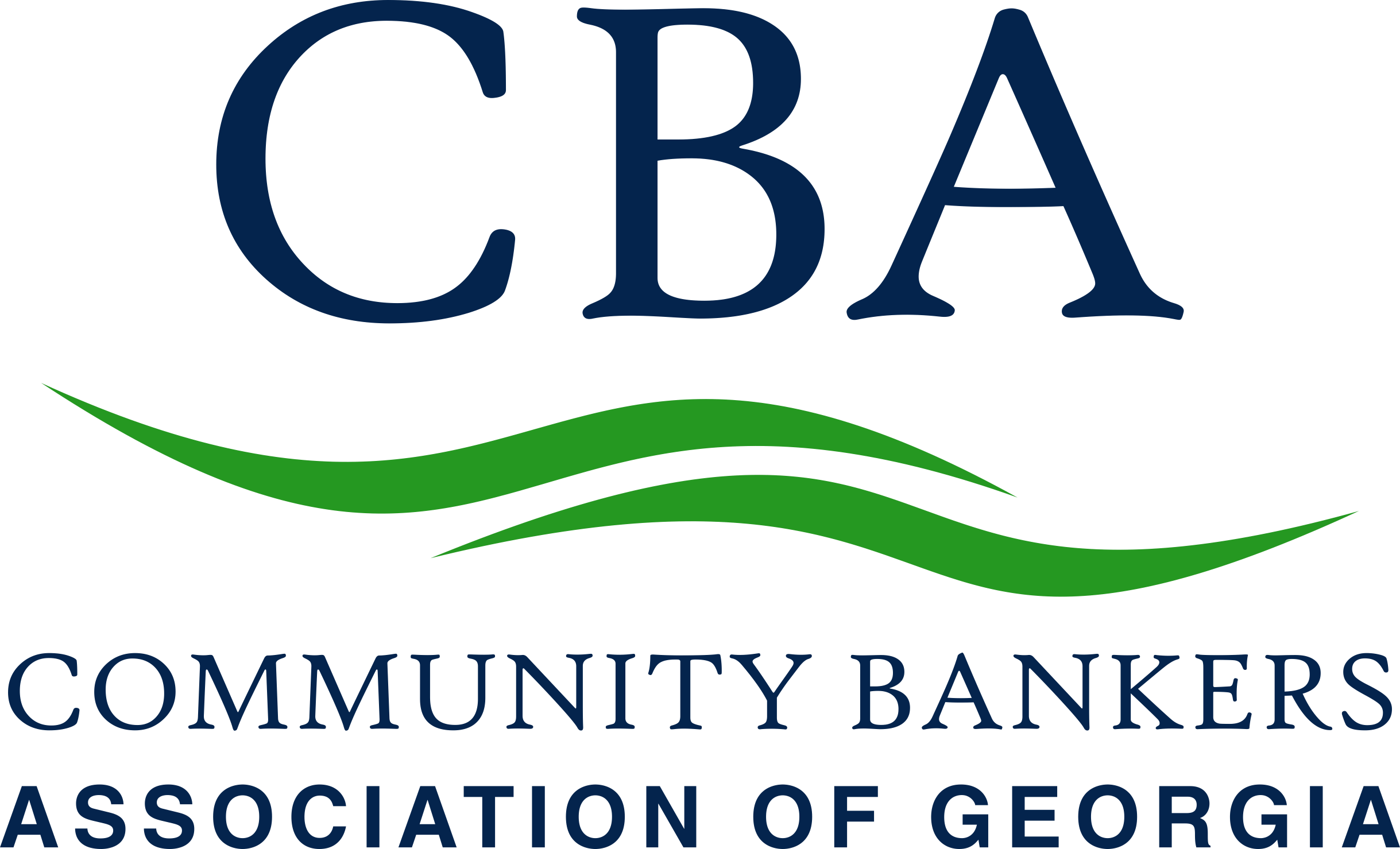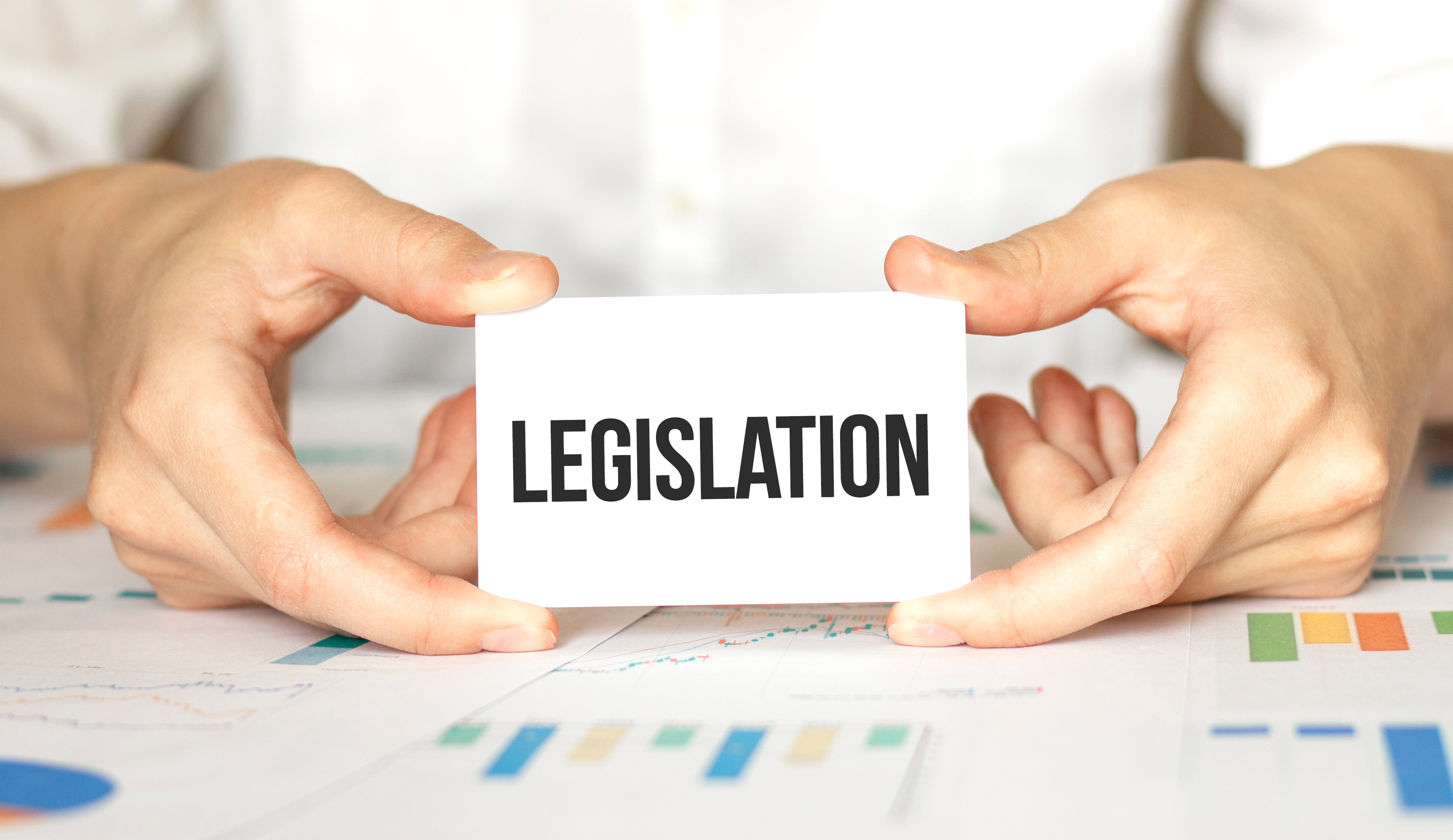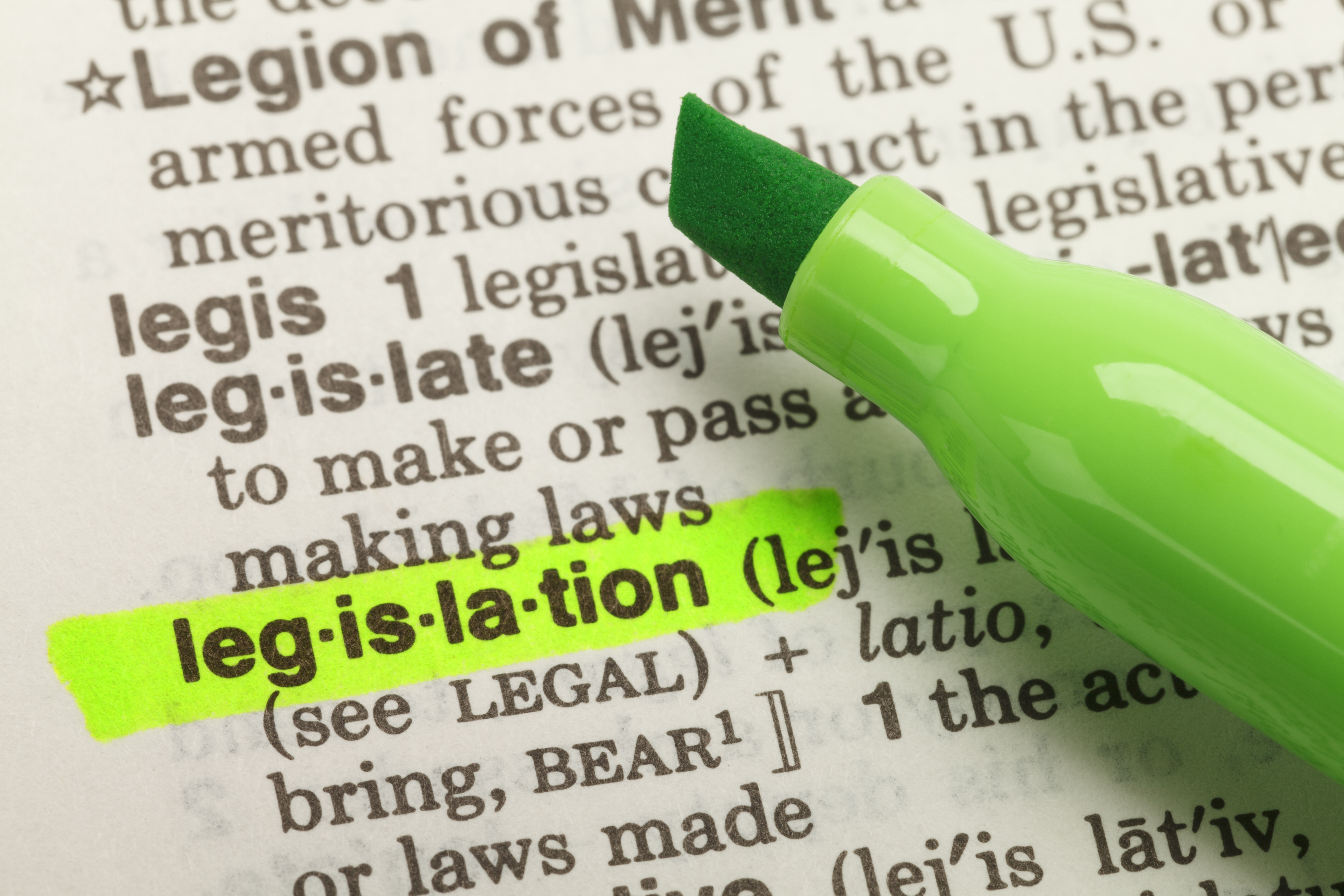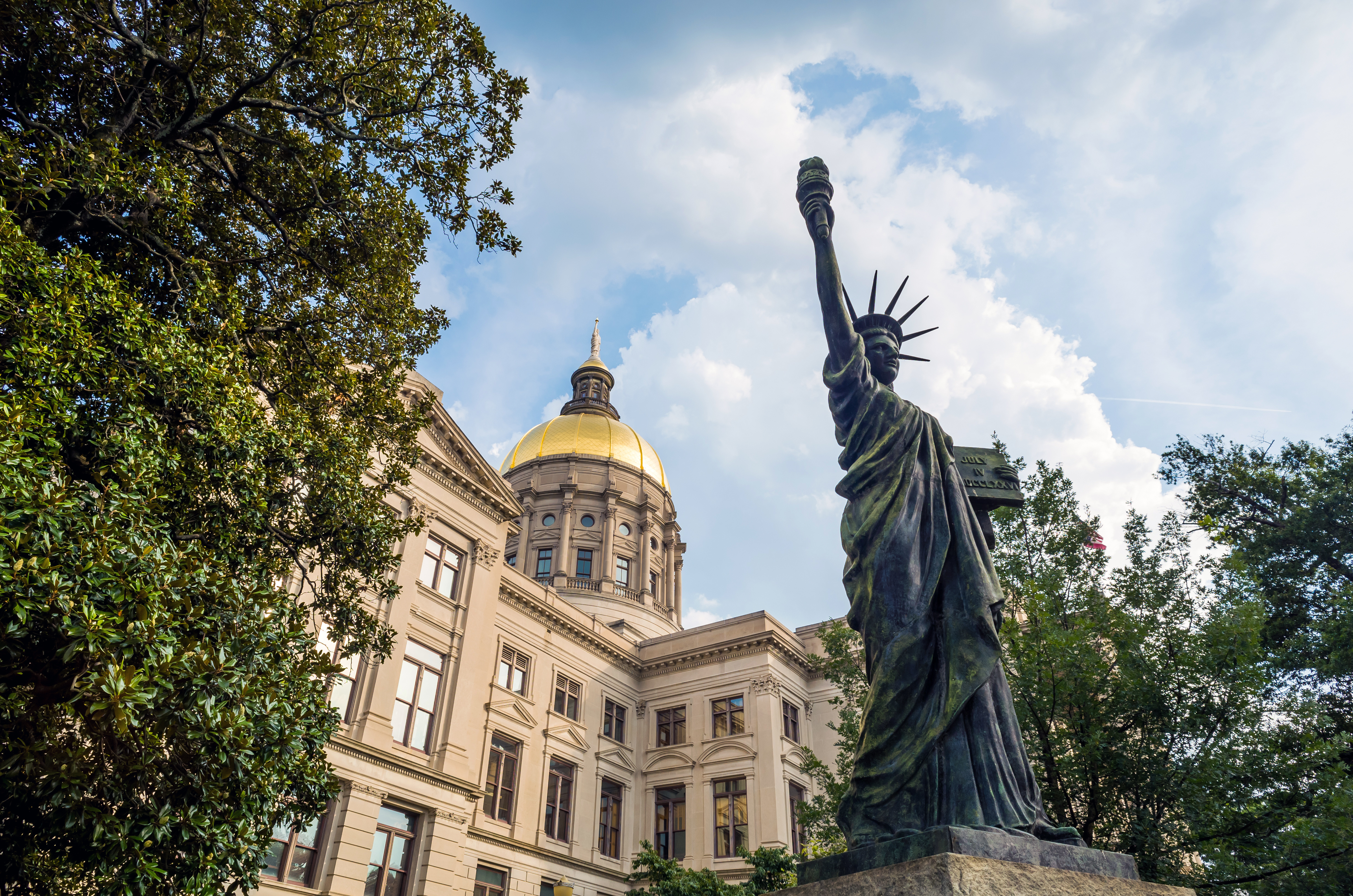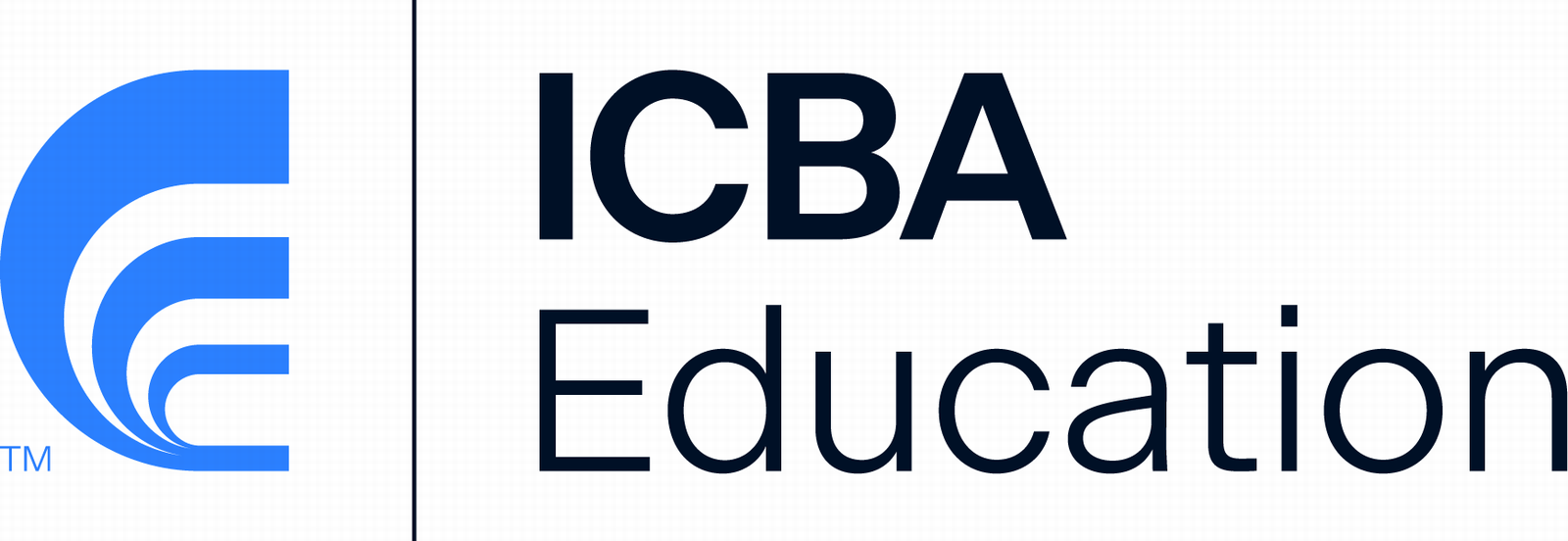Advocacy Update 2024 - Legislative days 19-22
The General Assembly was active each day this week. House and Senate committees convened for over 100 meetings to consider more than 200 measures, ultimately sending 120 on to the Rules Committees.
The harried pace is due to the looming Crossover Day deadline, set for Thursday, February 29. To receive additional consideration this session, Senate bills must pass the Senate, and House bills must pass the House by adjournment on Crossover Day. Committees are working doggedly to move bills to the Rules Committees, making them eligible for a vote by the full chamber. As the session edges closer to the significant Crossover Day milestone, time and energy will shift away from committees, and time spent on the House and Senate floor will increase dramatically.
Veteran Benefits (SB 451)
Sen. Nabilah Islam Parkes, D—Duluth
Bill heard by the Banking and Financial Institutions Committee on Feb 15th
The bill creates a voluntary loan program at certain financial institutions to assist veterans. CBA testified in opposition to the bill as drafted. Primary concerns with the bill relate to oversight and administration of the program by the Department of Banking without appropriations of funds to cover these activities. To hear the testimony, click here and start at 24:47.
Prior to the hearing on this bill, CBA corresponded directly with the author of the bill with our concerns in hopes of working out some sort of compromise before a hearing or a vote on the bill. The burden on the Department of Banking would be significant and the funds to properly oversee this program are estimated to be around $1 million. The Department would be required to approve institutions as a “Veteran Assistance Financial Institution”. There are examination requirements of the institution by the Department for this program. Reporting requirements to the State of Georgia would be required by the Department of Banking and the Department of Revenue on an annual basis. The Department of Veterans Services would be expected to play a role in this program as they would need to determine whether veterans are eligible for the program and provide that data directly to the financial institutions.
Committee members asked numerous questions on the bill to clarify where the money came from, how the money would be distributed, and what return the state may receive on the tax credits that are issued for this program. Funds would be provided by taxpayers as part of a tax credit issued by the Department of Revenue. The funds would go directly to an approved institution for them to lend out as part of this program. 20% of the funds would go to the bank to administer the costs of the loans. The maximum loan amount would be $10,000 per veteran and a 1 ½% interest rate for a 4-year term. Any interest collected on these loans would be re-invested as additional capital to lend on future transactions. Based on the administrative burdens and cost of doing business for institutions, the costs may not be worth the reward. While CBA wholeheartedly supports the concept of this bill, the processes associated with the program are overly burdensome without major changes to the bill.
Study Committee on Credit Card Fees (HR 1135)
Rep. Todd Jones, R—South Forsyth
Resolution assigned to the Agriculture and Consumer Affairs Committee on Feb 16th
The Resolution creates a House Study Committee on Credit Card Fees on State Sales and Excise Tax and their impact on Georgia merchants and consumers. The resolution outlines who the ten members of the committee would include:
-
Four members of the House of Representatives, including the Chairman of the House Banks & Banking Committee and the Chairman of the Technology and Infrastructure Innovation
-
Six non-legislative members:
-
-
One retail payments expert from a motor fuel or general retailer
-
One banking industry expert
-
One consumer member or consumer advocate
-
One payment-processing expert from a processing company
-
One restaurant owner operator or representative from the restaurant industry, and
-
One small business owner or operator or a small business representative
-
The study would explore various subjects, including the purpose and breakdown of credit card swipe fees, the role of merchants in addressing fraudulent transactions, the volume of fraud liability imposed upon merchants through chargebacks, the impact of swipe fees on low-income consumers, the anti-competitive nature of payment card marketplace, and the ability of merchants to communicate tax amounts based on information already provided as part of the transaction.
CBA plans to stay fully engaged on this subject and will consult with ICBA on this topic as they are fully engaged at the federal level. CBA stands firm in their position that a solution should be sought at a federal level and not at the state level.
New Legislation: General Business
Uniform Commercial Code Modernization Act of 2024 (HB 1240)
Rep. Matt Reeves, R—Duluth
Bill assigned to the Judiciary Committee on Feb 13th
The bill updates and modernizes various statutes in the commercial code relating to commercial transactions in order to maintain uniformity in this state’s statutes governing commercial transactions as recommended by the National Conference of Commissioners on Uniform State Laws. It establishes commercial law for transactions involving digital assets, adds a new article pertaining to electronic records, and adds a new article pertaining to transitional provisions.
Provide for Transfer-on-Death Deeds (HB 1247)
Rep. Rob Leverett, R—Elberton
Bill assigned to the Judiciary Committee on Feb 13th
The bill provides for transfer-on-death deeds and provides for execution and recording of such deeds. These deeds shall not be revoked by wills.
Liens of Condominiums and Lots (HB 1287)
Rep. Eric Bell, D—Jonesboro
Bill assigned to the Judiciary Committee on Feb 16th
The bill repeals certain provisions for liens on condominiums and lots related to collection of property association fees and assessments; allows foreclosure action on liens under $2,000.
Photographic Identification Cards for Deed Filings (HB 1292)
Rep. Gabe Okoye, D—Lawrenceville
Bill assigned to the Judiciary Committee on Feb 16th
The bill requires the clerks of the superior court to obtain photographic identification cards of individuals who present deeds or other instruments for recording. It also provides remedies for fraudulently recorded deeds or other instruments.
Cash Overpayments by Merchants (HB 149)
Rep. Mesha Mainor, R—Atlanta
Bill approved by the Agriculture & Consumer Affairs Committee on Feb 14th
The bill requires merchants to refund cash overpayments in the form of a store credit. Some exemptions for sole proprietors, events with 500 or more people, etc. are outlined within the bill.
Increase in Bankruptcy Exemptions (HB 628)
Rep. Matt Reeves, R—Duluth
Bill approved by the Judiciary Committee on Feb 15th
The bill would increase the current homestead exemption allowance from $21,500 to $50,000 for an individual and $43,000 to $100,000 for joint owners of aggregate interest in real property or personal property that the owner(s) or a dependent of the owner(s) or dependent of the owner(s) uses as a residence, or in a burial plot. If the bill passes, lenders should review their collection and underwriting processes to account for the increased bankruptcy exemption and update as needed to the extent this is already taken into consideration. A substitute version was presented to the committee increasing the exemption allowance from $21,500 to $35,000 for individuals and $43,000 to $60,000 for joint owners.
Small Business Protection Act (SB 429)
Sen. Greg Dolezal, R—Cumming
Bill approved by the Regulated Industries and Utilities on Feb 13th
This bill provides for the preparation and submission of small business impact analyses for bills introduced during sessions of the General Assembly. This bill is the centerpiece of the Lieutenant Governor’s red-tape reduction agenda. The small business impact analysis would be similar to a fiscal note the General Assembly is required to produce for tax bills describing the cost to the state. Proposed agency rulemaking would be required to include an economic analysis and the impact on small businesses.
[TAXATION]
Increase Statewide Ad Valorem Exemption for Tangible Personal Property (HB 808)
Rep. Mike Cheokas, R--Americus
Bill passed by Ad Valorem Ways & Means Subcommittee on Feb 15th
The bill increases a statewide ad valorem tax exemption for tangible personal property. The exemption would increase from $7,500 to $50,000 in a tiered manner over several years. A substitute bill was presented capping the exemption at $20,000 instead of $50,000 over several years.
Digital Production Income Tax Credit (HB 1180)
Rep. Kasey Carpenter, R—Dalton
Bill heard by the Ways & Means Committee on Feb 12th
The bill increases the base investment required for a qualified production company to qualify for a tax credit. It provides for a maximum amount of credits that may be transferred each year and provides for proration for the transferability of credit under certain circumstances.
[JUDICIAL]
Private Cause of Action for Equitable Relief (HB 267)
Rep. Tyler Paul Smith, R—Bremen
Bill heard in Judiciary Committee on Feb 15th
The bill relates to general provisions relative to income taxes and authorizes private causes of action for equitable relief regarding the failure of employers to comply with revenue provisions regarding employees.
COVID-19 Pandemic Business Safety (SB 430)
Sen. Greg Dolezal, R—Cumming
Bill passed by the Senate with a vote of 47-0 on Feb 15th
The bill revises provisions for rebuttable presumptions of risk by claimants in certain COVID-19 liability claims by repealing certain warning requirements. The liability protections remain in place, but the legislation removes the need for the warning signs that became ubiquitous during the pandemic.
Adult Abuse, Neglect, and Exploitation Multidisciplinary Team (HB 1123)
Rep. Carter Barrett, R—Cumming
Bill approved by the Judiciary Non-Civil Committee on Feb 12th
The bill establishes an Adult Abuse, Neglect, and Exploitation Multidisciplinary Team in each judicial circuit. An Elder Justice Coalition for the State of Georgia shall also be created. CBA worked with the author of the bill to have the Association included as part of this coalition, which was part of the substitute passed by the committee.
Georgia Consumer Privacy Protection Act (SB 473)
Sen. John Albers, R—Roswell
Bill heard by the Science & Technology Committee on Feb 15th
SB 473 protects the privacy of consumer personal data, defined as information that is linked or reasonably linkable to an identified or identifiable individual. It allows a consumer to invoke these rights, including correcting inaccuracies, deleting personal information, obtaining a copy of their personal information, opting out of the processing of their personal information, etc. The controller of personal data is obligated to limit the collection of such information to what is adequate, relevant, and reasonably necessary.
Personal Privacy Protection Act (HB 1113)
Rep. Matt Reeves, R—Duluth
Bill heard by the Governmental Affairs Committee on Feb 15th
The bill prohibits the collection and release of certain personal information. It excludes certain information from state open record laws and creates the crime of improper collection or disclosure of personal information. See also SB 414.
Elections Interference with a Deep Fake (HB 986)
Rep. Brad Thomas, R—Holly Springs
Bill approved by the Technology and Infrastructure Innovation Committee on Feb 15th
The bill establishes the criminal offense of election interference with a deep fake.
AI Usage by State Agencies (HB 988)
Rep. Brad Thomas, R—Holly Springs
Bill passed by the House on Feb 16th
HB 988 requires the Georgia Technology Authority to conduct an annual inventory of all systems that employ artificial intelligence and are in use by a state agency. This would apply to the Department of Banking and Finance. The bill defines AI as a “machine-based system that can, for a given set of human-defined objectives, make predictions, recommendations, or decisions influencing real or virtual environments…”
[PROPERTY]
Agriculture; Possessory Interest in Certain Land (HB 1093)
Rep. David Clark, R—Buford
Bill approved by the Agriculture & Consumer Affairs Committee on Feb 14th
The bill relates to general provisions relative to agriculture and prohibits the acquisition of possessory interest in certain land by certain foreign persons and entities. See also SB 420. Concerns were raised about potential violations of federal Fair Housing requirements at the last committee meeting. The author stated that he does not believe that a violation would occur because the bill merely requires you to disclose the requirements of this code section and does not ask specific questions of the purchaser.
Grant Post-Appeal Value Freeze only to Homesteaded Property (HB 1120)
Rep. Darlene Taylor, R—Thomasville
Bill heard by the Ways & Means Committee on Feb 12th
The bill excludes non-homesteaded residential property from the post-appeal valuation freeze. This is one of several property tax reform bills, including SB 349, SB 364, HB 1031, HB 1177, and HB 1185.
Property Owners’ Associations (HB 220)
Rep. Rob Leverett, R—Elberton
Bill approved by the Judiciary Committee on Feb 15th
The bill provides for means of enforcement of condominium and property owners' association instruments, rules, and regulations; provides for compliance with, and means of enforcement of, covenants and instruments for certain planned subdivisions.
